machine translation result
Hangul
The all images below are the result of Google machine translation tools from Hangul to English and you will be understood that night and chestnut in English are homonym (I. e. each of two or more words having the same spelling or pronunciation but different meanings and origins.) in Hangul.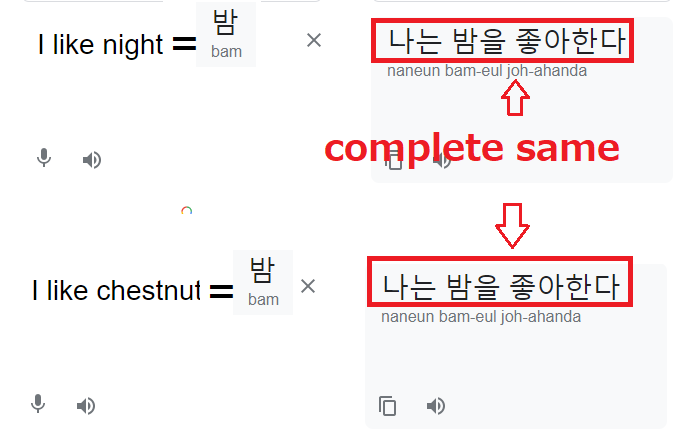
You will be able to find that the same pronunciation in Korean completely expressed in the same Hangul letters, in other word, despite there is a huge number of homonym in Korea, all homonym is expressed completely same Hangul letters.
Although "flower=ˈflou (ə) r" and "flour=flou (ə) r" in English is completely same pronunciation (I. e. homonym), English, which is phonetic characters can express reciprocal different letters. On the other hand, Hangul, which is a phonetic character as well as English can't express different letters like a above example, and that is the crucial disadvantages of Hangul which is substantially near the phonetic symbol rather than phonetic character.
Hangul, which is phonetic characters was created at Korean peninsula in the 15th century. However, Hangul were never considered as official characters was in Joseon dynasty periods, Chinese characters completely was the official characters were in Korean peninsula, Therefore, all official records of Joseon dynasty periods were written in Chinese characters.
It does not matter what Hangul were not officially used in Joseon dynasty periods at Korean peninsula, but it is the cause of various "insane incidents" among modern Koreans.
Hangul is substantially the phonetic symbol, please see machine translation result.
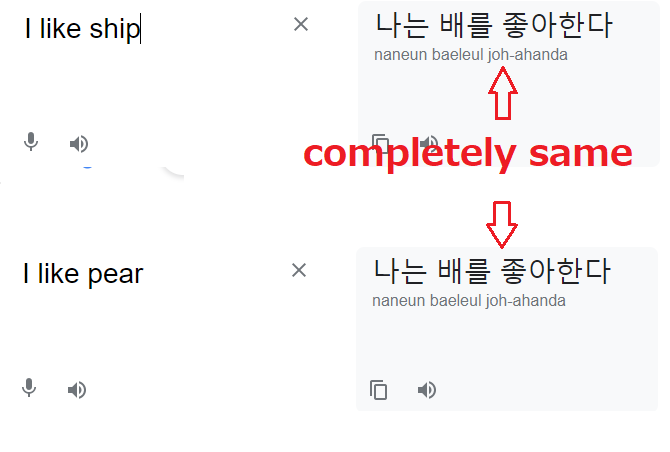
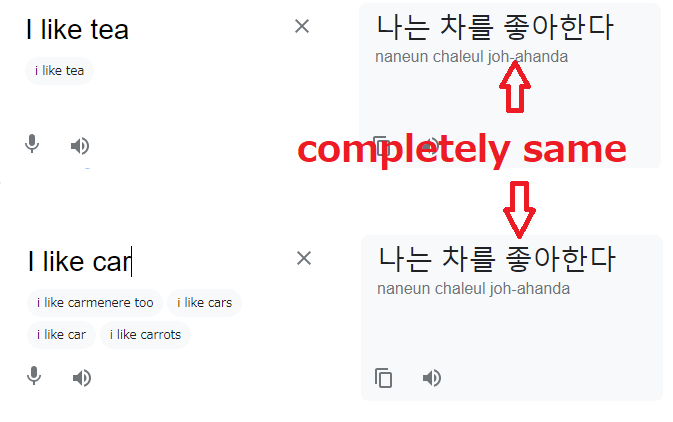
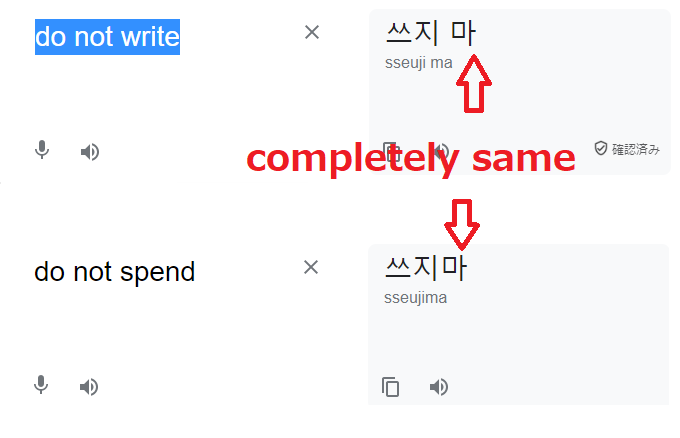
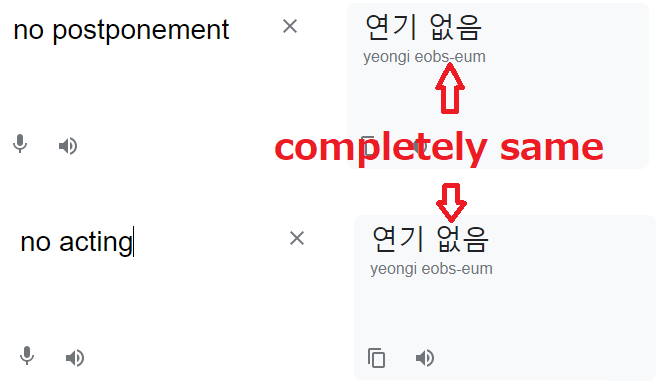
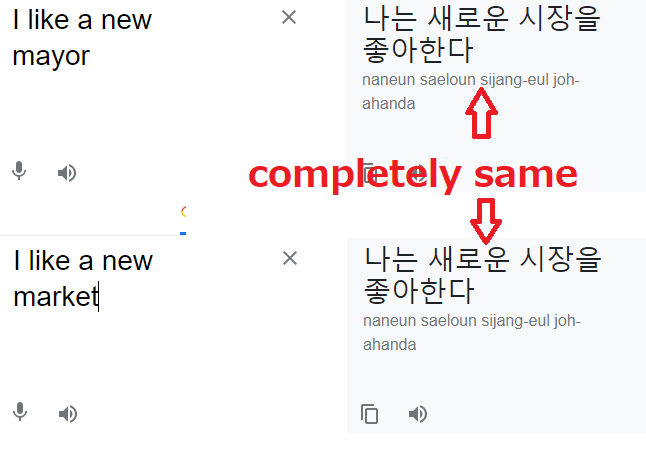
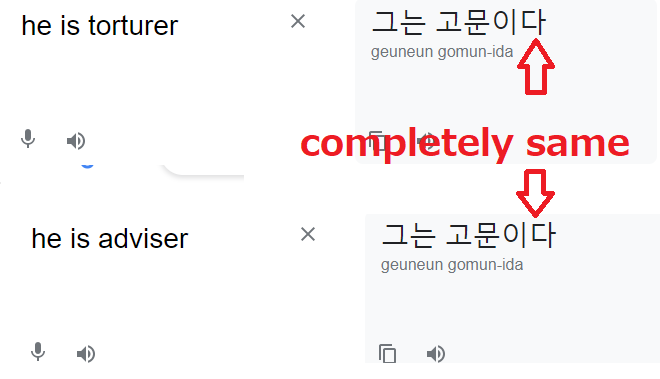
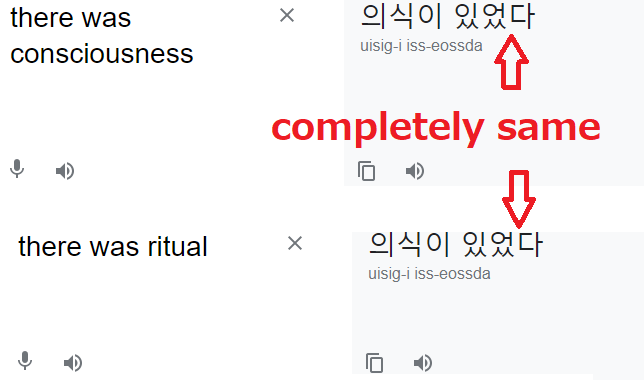
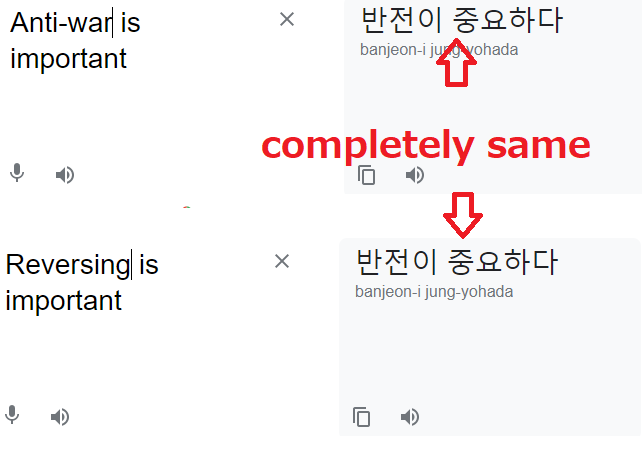
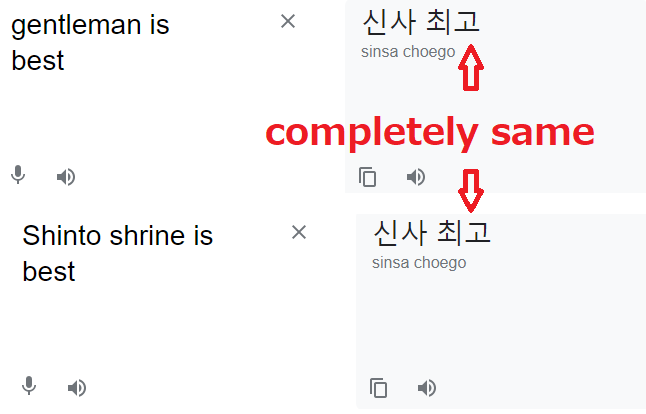

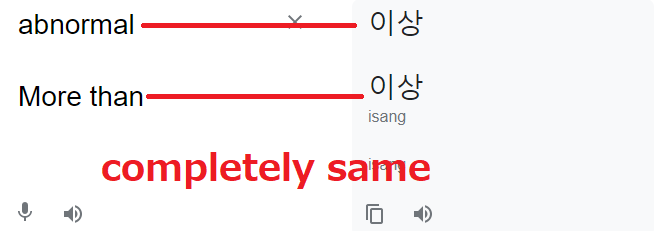
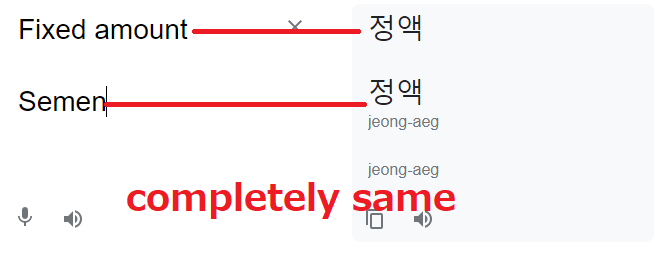
As the natural results, truth to tell, a great majority of Koreans can't understand various complex and abstract contents written in Hangul, and that is the cause of the perpetual anti-Japan sentiment among Koreans. Therefore, redress of anti-Japan sentiment among Koreans would be clearly impossible!.
Moreover, as a matter of fact, there are more large number of homonyms between Korean and Japanese, for instance,
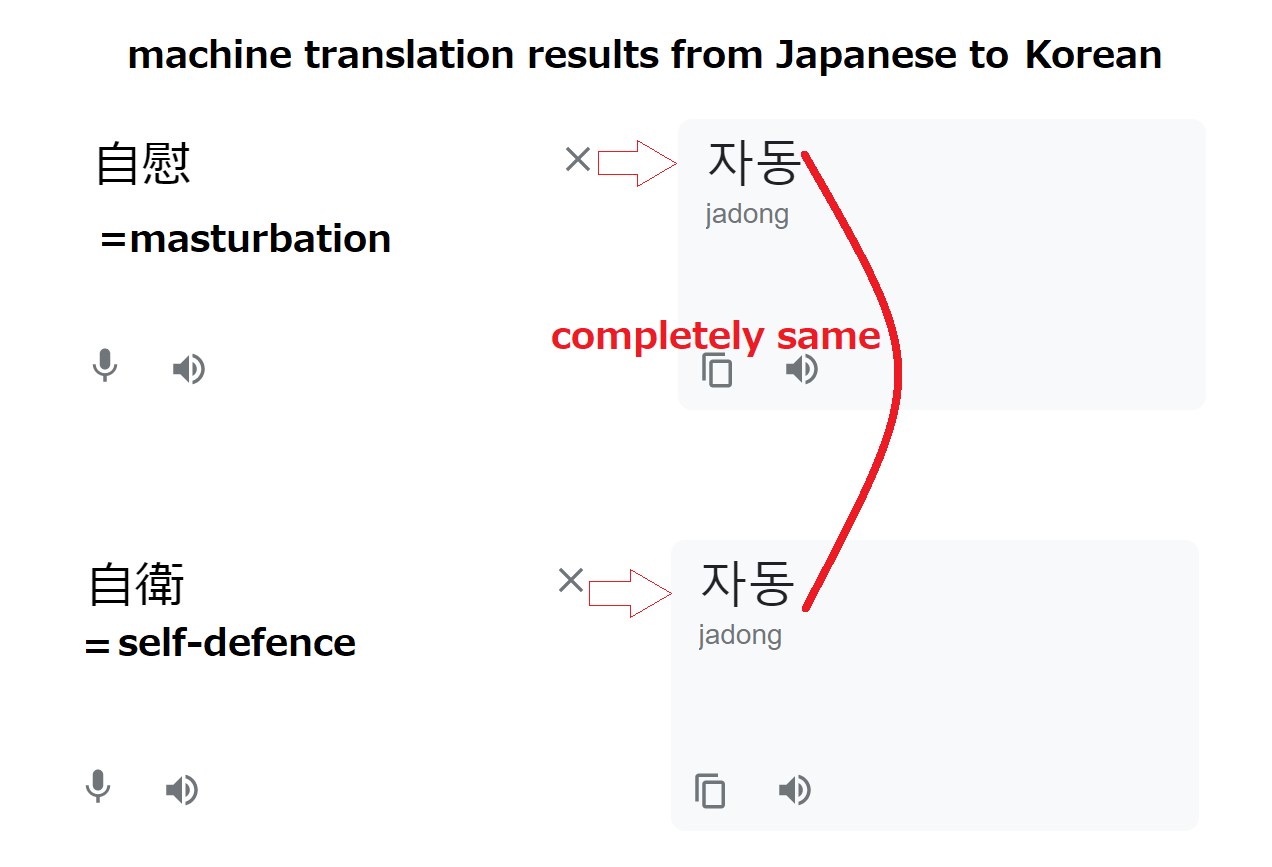
>
So, it's never joke that self-defense forces in Japan also are masturbation forces in Hangul.
Hangul clearly the worst phonetic characters in the world, considering that fact that more than 50 million peoples are actually using, and characteristic of Hangul which are often pointed out in Japan is as follows.
1. Because of extremely large numbers of homonyms, misunderstanding often occurs in the case that short sentence which consisting within ten letters. For instance, please enter "I like chestnut" and "I like night" in Google machine translation.
2. Hangul is never suitable for contents which are complex and abstract, so readers of Koreans very frequently make a misunderstanding for such a contents.
3. On the other hand, Hangul is suitable for emotional and sentimental expression.
4. Hangul is very suitable for abusive expression to others. Therefore, Koreans have extremely huge abusive expression to others, so Google machine translation tool is never effective for translation of postings in Hangul on the Internet.
5. A great majority of linguist in Japan except for Korean-Japanese considers the origin of Hangul as Phags-pa script.
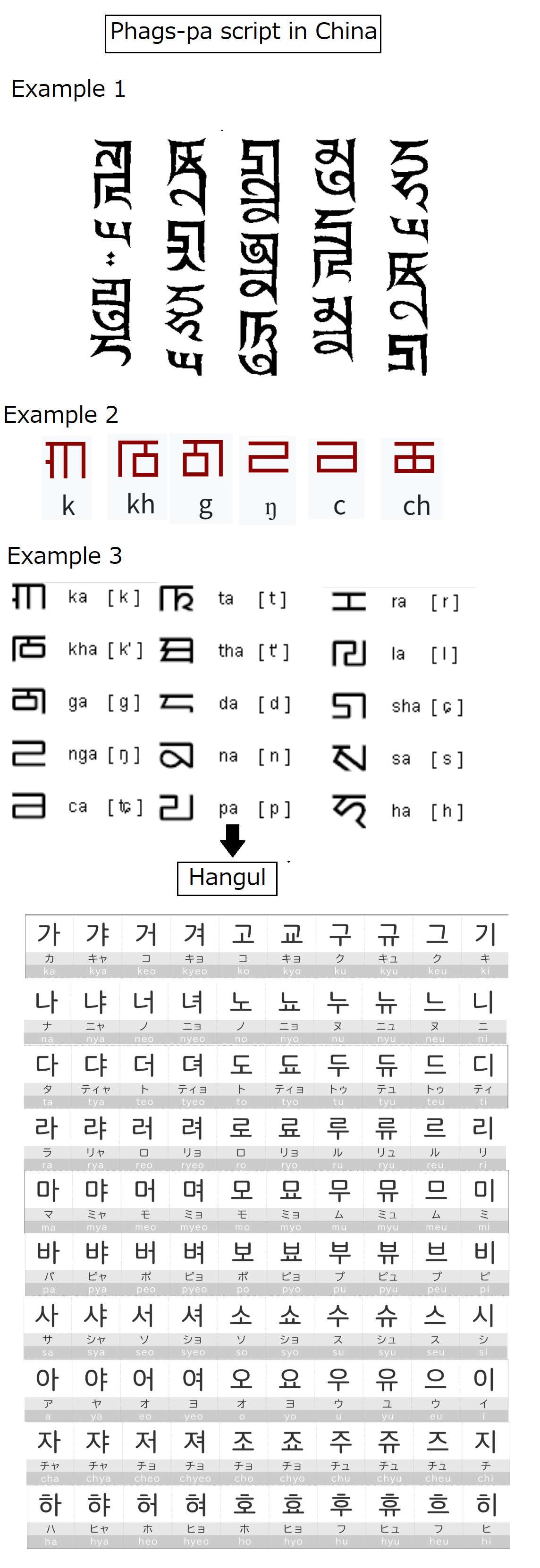
From Google AI
The Phags-pa script is a writing system developed in the 13th century under the Yuan Dynasty in China. It was commissioned by Kublai Khan to create a unified script for the various languages spoken within his empire. Designed by the Tibetan monk Drogön Chögyal Phagpa, it was based on the Tibetan alphabet and intended to write Mongolian, Chinese, Tibetan, and other languages.
Purpose:
Kublai Khan sought a single script to unify the diverse languages within his empire, facilitating communication and administration.
Creator:
The script is named after Drogön Chögyal Phagpa, a Tibetan lama who served as Kublai Khan's Imperial Preceptor.
Basis:
The Phags-pa script is based on the Tibetan alphabet, specifically the 'dbu can' script.
Usage:
While intended for various languages, its use was primarily for Mongolian and Chinese, particularly during the Yuan Dynasty.
Legacy:
Although it fell out of widespread use with the end of the Yuan Dynasty, it is still studied for its historical significance and linguistic insights, especially regarding the pronunciation of Middle Chinese.
Features:
The script is an abugida, where each letter typically represents a consonant with an inherent vowel. It has 41 letters and is written in a square, block-like style.
Purpose:
Kublai Khan sought a single script to unify the diverse languages within his empire, facilitating communication and administration.
Creator:
The script is named after Drogön Chögyal Phagpa, a Tibetan lama who served as Kublai Khan's Imperial Preceptor.
Basis:
The Phags-pa script is based on the Tibetan alphabet, specifically the 'dbu can' script.
Usage:
While intended for various languages, its use was primarily for Mongolian and Chinese, particularly during the Yuan Dynasty.
Legacy:
Although it fell out of widespread use with the end of the Yuan Dynasty, it is still studied for its historical significance and linguistic insights, especially regarding the pronunciation of Middle Chinese.
Features:
The script is an abugida, where each letter typically represents a consonant with an inherent vowel. It has 41 letters and is written in a square, block-like style.
